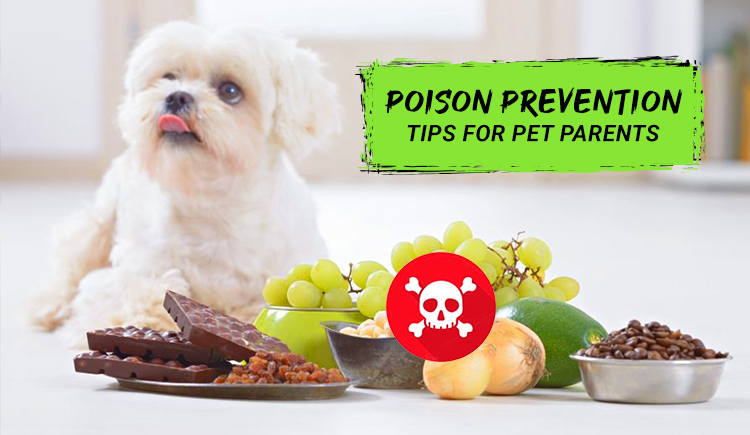
Many common household foods, products, and plants can make pets severely sick; a thorough assessment of your home, including exterior locations, can help lessen the danger. Pets, especially cats, are naturally curious creatures, and if a partially empty container containing cleaner, alcohol, drugs, or other items is left out, your pet may “explore.” It’s easy to imagine a cat cleaning herself with her tongue after a spilled poisonous fluid gets on her paw, eating something harmful. Unfortunately, because our pets’ bodies and weight are so small, even a small amount can be dangerous for their health.
Common Household Foods and Products
There are a variety of human meals that are hazardous to pets. Here are a few examples:
- Alcohol
- Bones
- Fatty foods
- Tea
- Avocado
- Yeast dough
- Salt
- Caffeine
- Chocolate
- Citrus oil extracts
- Grapes and raisins
- Moldy foods
- Medicine/ supplements
- Onions
- Garlic
Common House Plants Toxic for Pets
- Azalea
- Cactus
- Creeping Charlie
- Lilies
- Poinsettia Ivy
- Mistletoe
- Philodendron
Read About- Looking For More Protection For Your Canine Companion?
Use Cleaning Products Carefully
Many common household cleansers are safe to use around pets. The key to safe use is to read and follow product instructions for proper use and storage. If the label says “keep pets and children away from the area until dry,” follow those instructions to avoid any health hazards. When used appropriately, bleach products can safely disinfect many domestic surfaces, but if swallowed, they can induce stomach distress, drooling, vomiting, diarrhea, or serious burns, and if inhaled in a high enough concentration, they can cause respiratory tract irritation.
Chemical burns can occur when the skin comes into contact with concentrated solutions. Some detergents can cause a similar reaction, and some chemicals, such as phenols, might be particularly irritating to cats. As a general guideline, keep all cleaning products in their original packaging or in a clearly labeled and tightly sealed container out of reach of pets and in a safe cabinet out of reach of children.
Bottom Line
If you suspect pet poisoning, it’s important to seek emergency veterinary care. If you suspect your pet has consumed something harmful, get medical attention right away rather than waiting until your pet exhibits serious symptoms. Contact your veterinarian or Pet Poison Helpline immediately for life-saving help.

